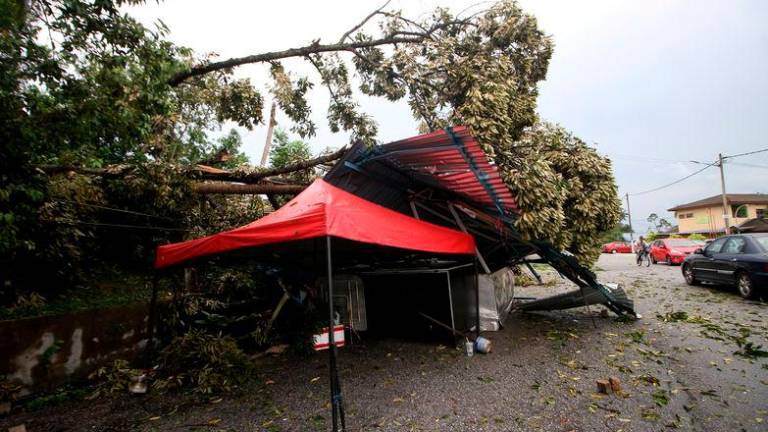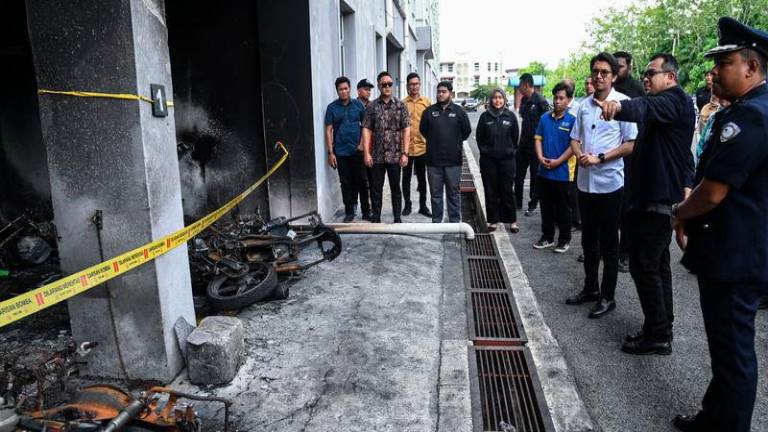AS we woke up on Friday morning, the whole country was shocked by the landslide tragedy in Batang Kali, Selangor.
At the time of writing, two dozen bodies have been found and the search and rescue operation is ongoing.
It is obviously a traumatic event for those who were involved, but what can the rest of us do?
Are our feelings of despair and hopelessness real and need to be dealt with?
The term “tragedy” is derived from the Greek word tragidia, which means “goat song”.
In ancient Greek theatre, tragedies were plays that depicted the suffering and downfall of a heroic figure, often through the use of music and dance.
In modern usage, the term tragedy can refer to any event or situation, be it real or staged, that causes great suffering or loss, whether or not it involves death.
Tragedies of this type can include events such as earthquakes, hurricanes, tsunamis, and other natural disasters, as well as man-made disasters such as wars, bombings and accidents.
These types of tragedies can have a profound impact on individuals, families and communities, and can often result in significant emotional and psychological trauma, in addition to physical loss.
It is common for people who were not directly involved in a traumatic event to feel emotional about it.
This is known as vicarious trauma and it can occur when people are exposed to the experiences of others who have undergone trauma.
Vicarious trauma can be especially common among people who work in fields such as social work, counselling, or healthcare, where they may be exposed to the traumatic experiences of others on a regular basis.
And to a lesser extent, it also occurs to others who are exposed via various media platforms.
Vicarious trauma can manifest in a number of ways, including physical symptoms (such as fatigue or insomnia), emotional symptoms (such as sadness, anxiety, or feelings of helplessness) and behavioural changes (such as changes in appetite or difficulty concentrating).
When dealing with the emotional impact of a traumatic event, be it vicarious or otherwise, there are several stages that people may go through.
These stages, which were first described by psychiatrist Elizabeth Kübler-Ross, are known as the “five stages of grief”. They are denial, anger, bargaining, depression and acceptance.
It is important to note that these stages are not necessarily experienced in a linear fashion and may not apply to everyone who has experienced a traumatic event.
Some people may experience all of the stages, while others may not experience some of the stages at all.
The length of time that it takes to go through these stages can also vary significantly from person to person.
It is true that the psychological impact of a tragedy is often predictable to some extent as many people, either directly or indirectly, will experience some level of trauma in response to such events.
However, the severity and specific symptoms of the trauma can vary significantly from person to person.
This is because people have different coping mechanisms and past experiences that can affect how they react to a traumatic event.
Some people may be more resilient and able to cope with the trauma more effectively, while others may be more vulnerable and experience more severe symptoms.
Additionally, the psychological impact of a tragedy can be influenced by a variety of other factors, such as the level of support available to the individual, their social and economic status, and their cultural and personal beliefs.
For example, people who have strong social support networks and access to mental health resources may be better able to cope with the trauma than those who do not.
Similarly, people who have experienced trauma in the past may be more likely to develop more severe symptoms in response to a new traumatic event.
To conclude, our feelings towards these traumatic events, whether we are involved, are real. As such, it will go through the same described stages.
It is imperative for everyone to realise that these stages are often a process.
It may take time to fully come to terms with a traumatic event.
It is okay to take things at your own pace and to seek out support when you need it.
This can include talking to a mental health professional, participating in self-care activities and seeking support from trusted friends and family members.
It can also be helpful to set boundaries and find ways to manage the emotional impact of your work.
Assoc Prof Dr Nahrizul Adib Kadri is the director of corporate communications centre, Universiti Malaya. Comments: letters@thesundaily.com










